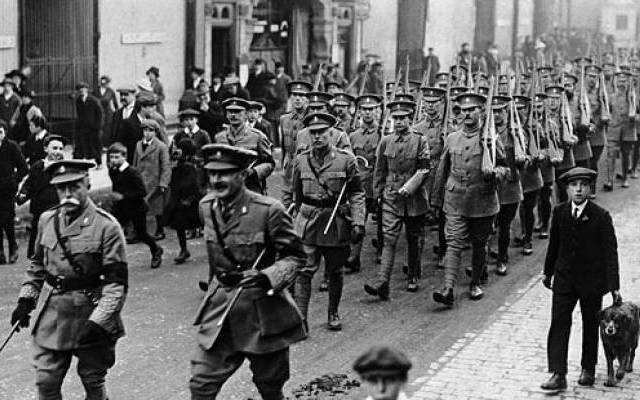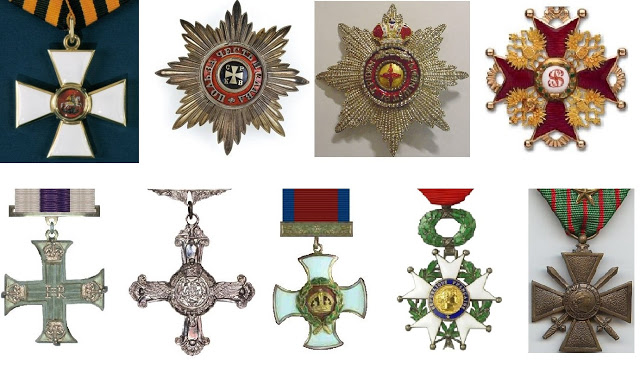History knows many examples of the heroic deeds of soldiers of the Russian army. The destruction of the enemy on a burning plane, the throw on the embrasure - all these selfless acts will forever be firmly entrenched in the memory of the people who defeated Nazism.
However, not all feats are remembered by the modern generation. For example, the contribution to the victory of Alexander Alexandrovich Kazakov is forgotten. Courage and devotion to the motherland, which determined the risky action of this man in the future, distinguish him from other military men. It was he who became the second pilot to commit an air ram during the First World War (and the first pilot to survive after him).
Hero Biography
He was born at the end of the nineteenth century in the Kherson province, which at that time was part of the Russian Empire. A boy was brought up in a noble family, honoring the tradition of military education. Kazakov studied at the Voronezh Cadet Corps, and after graduation he entered the Yelisavetgrad Cavalry School, from which he graduated as a cornet. Then Alexander joined the 12th Lancers Belgorod Regiment, owned by the Austrian Emperor Franz Joseph I. A few years later, for military success, then officer Kazakov, was awarded a silver medal issued in honor of the sixtieth anniversary of the reign of Franz Joseph.
Looking ahead, I want to say that fate joked with Alexander Aleksandrovich Kazakov, bringing him face to face with the army of the same Austrian emperor, who was the honorary chief of the Uhlans regiment. This happened during the First World War, in which the pilot bravely fought for the honor of the Motherland.
Empire Service
In the First World War, Alexander A. Kazakov became famous as a magnificent pilot. While serving in the Belgorod regiment, he filed a request for transfer to the aviation department - after all, the beginning of the twentieth century was marked by the development of aviation, which turned all ideas about the conduct of hostilities. The request was granted, and already in 1914, Kazakov was transferred to the welcome department. Thus, the young lieutenant became a member of the future Gatchina aviation school. But soon a destructive war awaited the world ...
Start of war
On June 28, 1914, the world stirred the news that the heir to the Austrian throne, Archduke Franz Ferdinand, had been killed in Sarajevo. The murder of a member of the imperial family was a formal occasion for the beginning of a bloody war, which would drag on for 4 years and take the lives of about 20 million soldiers.

The young pilot Kazakov could rightfully become famous as a hero of the First World War. Several times he carried out successful sorties, attacking the enemy’s military base. However, one of the most memorable cases was the night meeting of Kazakov with a German pilot in January 1915. Obsessed with the desire to teach the enemy a lesson, the pilot of the Russian army immediately went on the attack. From this, the German was horrified and tried to get away from the threat. But Kazakov was adamant in his decision, and therefore followed the enemy right up to the front line. Unfortunately, the German pilot was able to slip away. Nevertheless, it was already clear then: in battle, the Cossacks would not stop at nothing.
Feat
It was in the framework of the First World War that Kazakov accomplished his first feat - he carried out the second night ram of the enemy air force in history. This happened in March 1915. The first hero to complete such a feat was Pyotr Nikolayevich Nesterov.
For his decisiveness, intransigence and desire for victory, Alexander Alexandrovich Kazakov was awarded one of the highest awards in the Russian Empire - the award George weapons. The feat brought him new stars too - already in August Kazakov would be honored to accept the position of head of the corps aviation detachment.
Further, victories in air battles will follow one after another. Luck favors him, because he, like no one else, knows how to show his best military qualities not only in a team, but also alone.
On the award St. George's weapon, the list of Kazakov's regalia will not end. Another award will be added to his collection - in 1916 he will be awarded the Order of St. George.
Revolution
It was 1917. The empire was swept by a second revolutionary wave. All of Europe watched the destruction of the once powerful power: first Russia lost the emperor, then left the "imperialist" war, without waiting for its end. October has come. Sailors, armed with rifles, approached the Winter Palace - a magnificent monument of imperial architecture. The first shot rang out - the empire was dead.
The change of power could not but leave a mark on the life of the inhabitants of the former empire. And it turned out to be difficult for Alexander Alexandrovich Kazakov to maintain relations with the new Soviet government. He, contrary to the line of the Bolsheviks, advocated the war “to the end”, which earned him the fame of a reactionary, for which he was removed from the post of commander.
The heated political situation affected not only the career, but also the health of Alexander Alexandrovich. In December 1917, the medical commission sent Kazakov to restore strength in Kiev, after which he himself would move to Petrograd.
It is not worthwhile, however, to consider that Kazakov always perceived the Reds with hostility - on the contrary, he actively tried to get closer to the Soviet government; Kazakov met with Leo Trotsky himself, the People's Commissar for Military and Naval Affairs. However, the chaos that occurred in Petrograd could not leave Kazakov indifferent: during the Civil War, he would take the side of the whites. In order not to fight for the Reds, as a reserve officer, he secretly escapes to Murmansk.
Civil War
During the Civil War in Russia, Kazakov took part in operations in the North and rose to the high rank of the Royal Air Force of Great Britain. The fact is that in 1918 a Slavic-British aviation detachment was formed in Arkhangelsk, the commander of which was our hero. In 1919, the pilot was seriously injured, but this did not break his spirit. As during the First World War, Kazakov carried out successful sorties and repeatedly inflicted damage to the enemy.

Unfortunately, the path of the legendary pilot was short and limited to several tens of years. Kazakov’s fate is sad: he died in his thirtieth year of life. According to one version, it crashed in a plane crash, according to another - the pilot committed suicide, not resigning himself to military failures. It seems strange that a few days before the death of the Cossacks, he refused a high post and evacuation to the United Kingdom. This was to take into account the hero, distinguished by a brave heart and the ability to stand his ground to the end.
The great ones leave young, because usually in life they have only one goal - to make a breakthrough, to do something that no one has ever done. A short period of 30 years of life was enough for Alexander Kazakov to accomplish something that no one had done before - to survive after the death ramming of an enemy aircraft. Despite a difficult fate, he courageously overcame all the hardships of life and never followed false ideals. His life is an example of an irreconcilable struggle between a cruel world and a pure human soul.